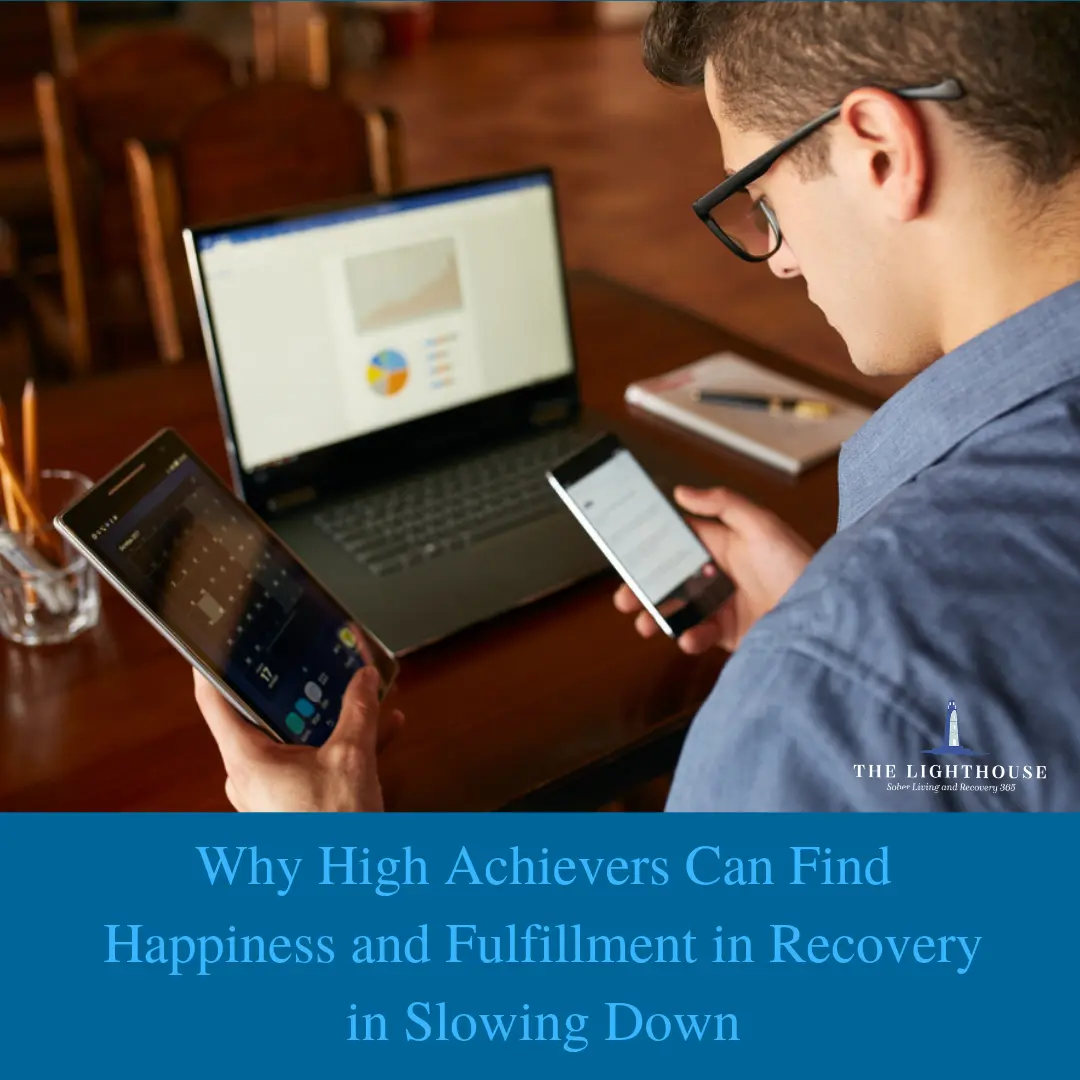Why High Achievers Can Find Happiness and Fulfillment in Recovery in Slowing Down
Why High Achievers Can Find Happiness and Fulfillment in Recovery in Slowing Down
Guest post: Justena Kavenaugh, Founder, NYC Counseling
Success and substance use are often highly correlated.
Substance use can contribute to achieving success and/or can result from success.
Many people achieve success by overriding their vulnerabilities.
There are few better ways to override doubt and shame than silencing them with a substance. While the healthiest way “out of” negative feelings is through them, most people opt to try to get rid of them. The problem is the feelings we resist, persist to cause pain. So short term respite leads to long-term pain.
Think of tolerating vulnerability and navigating negative emotions as a muscle.
What you know and understand about muscles is the fewer use your muscle receives the weaker the muscle gets. The more we rely on a crutch the stronger our dependence on this crutch grows.
We live in a culture and era that rewards invincibility and invulnerability, as well as effectiveness and efficiency. Employers often do not always hire the smartest but the most determined. An athlete who pushes himself and his team to glory is a greater asset than a laid back genius or dreamer.
Why high achievers find happiness in slowing down
The success achieved through invincibility and invulnerability correlates to low self-esteem and perfectionism. A beautiful house built on a shoddy foundation. So many high achievers learn how to earn external markers of success but often do not know who they are inside. They know how to overcome any challenge in front of them but cannot tell you how it feels to fear, worry, and succeed.
I saw a man for many years who finished Stanford Business School at age 22 and retired from Wall Street at 29. By 35, he had checked in to Silver Hill for addiction and, while he stayed mostly “dry” he struggled enormously in his recovery.
He had aced every academic test and mastered all his professional achievements.
His muscle for external success was extremely strong. His muscle for understanding himself, tolerating uncomfortable feelings, and being open with others was extremely weak. When he no longer had to work, he did not know how to find meaning in his life. An avid reader, he traveled extensively with his wife, but both struggled with depression and substance use.
The cultures of finance and tech, and other high stakes industries, strongly encourage the “work hard, play hard” mentality. As long as you are succeeding, or often hyper-succeeding, in your career (or academics), you often feel substance use is well-deserved or, at very least, not interfering with your goals. It can be the release valve after foregoing indulgence.
Another man I saw in therapy was a partner at a top Wall Street law firm, happily married to his college sweetheart with whom he had 3 kids, and a good athlete. He had two behaviors which were threatening his marriage and his career. We were working on moderation management and he was easily able to only drink a few nights each week. The problem was that about once a month his drinking turned into an all-night cocaine binge. In order to tolerate the pressures of an intense job, three kids and four dependent parents/in-laws, he did not need daily or even weekly drinking but about a monthly big blowout (pun intended), which he looked forward to, even when he was trying to stop doing so.
Everyone’s bottom is different.
“Rock bottom” for highly successful people does not look like we might think. It’s not homelessness, unemployment, or legal problems. “Rock bottom” may be hidden behind winning an academy award, retiring by 30, a record-breaking IPO, triathlons, an enviable marriage, beautiful children. Rock bottom is often a marriage crumbling fast or slowly, missing out on your children’s youth either physically or emotionally, no longer enjoying what you used to without substances, needing to medicate your hangovers, a career on the line.
Everyone’s bottom is different. Some people seem to have hit bottom but then end up doing the limbo, layering losses upon losses–careers, spouses, custody, real estate, etc. And some people never hit an apparent bottom as they “function” highly for decades on end self-medicating daily. With no obvious cost, these addicts might not see or acknowledge the erosion of relationships and tolerance for difficult emotions likely passing the price on to the next generation.
You can find happiness in a lifestyle of recovery
Recovery is not the “life” (or “death”) sentence that so many addicts fear. Instead, it is a chance to build or rebuild the foundation on your beautiful home and demolish the parts that no longer work. It’s an upgrade to the parts that do and renovation for the ones that need to change.
Justena Kavanagh, LCSW-R
Justena graduated magna cum laude from Dartmouth College where she was elected to Phi Beta Kappa. She earned her MSW at New York University. She previously consulted for Fortune 100 companies and was a journalist for ABC News. As a former journalist and management consultant, Justena gained insight into many aspects of human emotion and behavior. She also became increasingly aware that external markers of success do not always translate to inner contentment.
Justena understands that beginning therapy is not necessarily an easy decision but believes that it can lead to profound change and life richer in meaning, well-being, and satisfaction. Working with you, she will help you identify and transcend the behaviors and barriers that are holding you back, and empower you in your journey of self-discovery and fulfillment. Her clients are from all walks of life and include high-level executives, entrepreneurs, doctors, and artists.



